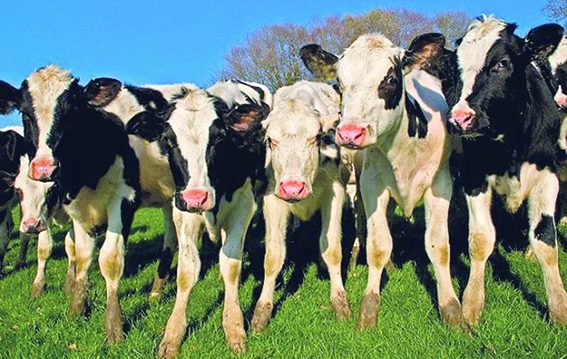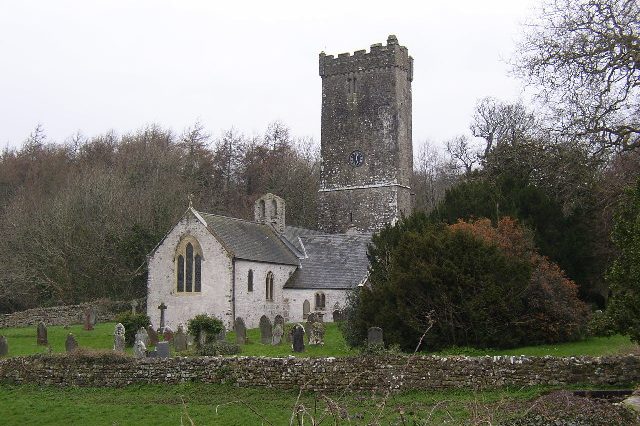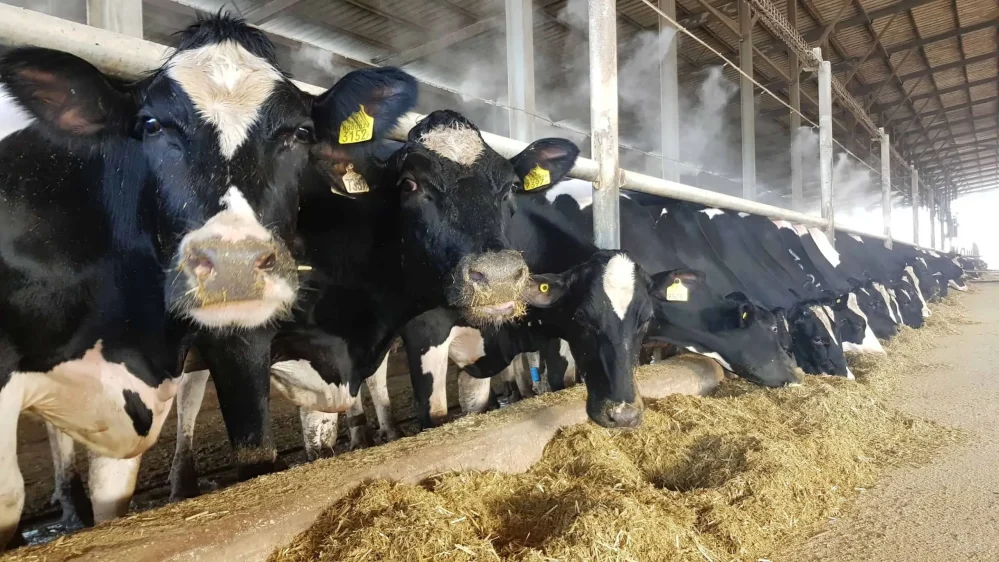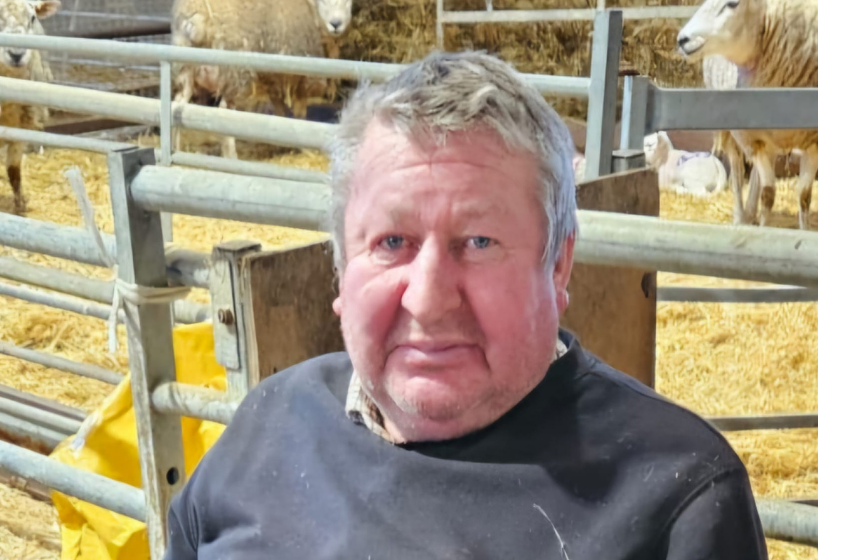Farming
No badger cull but bTB strategy change on cards

THE WELSH GOVERNMENT has ruled out controlling the spread of bovine TB through a targeted cull in areas where the disease is endemic.
A spokesperson confirmed the Welsh Government’s position ahead of the publication of a significant review of its TB eradication strategy.
The review, led by Professor Glyn Hewinson of Aberystwyth University, is likely to focus on cattle vaccination and the use of improved tests for TB bacteria in cattle.
False positives for BTB can only be detected after death by a post-mortem.
BOVINE TB DEVASTATES PEMBROKESHIRE FARMS
The persistence of the BTB bacteria in the soil and in the protected wild mammal population, particularly badgers, creates a perfect storm for farmers in our county.
The area around the shared borders of North Pembrokeshire, the Teifi Valley, and North West Carmarthen is a long-standing hotspot for the disease.
Farmers in that area have suffered disproportionate and repeated losses throughout the Welsh Government’s different approaches to eradicating BTB.
When the disease is detected in a herd, it is standard practice for all of it to be slaughtered. Although farmers are partly compensated for their loss, the loss of their stock leaves farmers with long-term problems for their business’s recovery.Herds’ loss and slaughter are linked closely to mental health problems among farmers and farming families. The cost of BTB is much greater than balancing profit and loss.
CURRENT PROGRAMME ISN’T WORKING
Local MS Sam Kurtz, who comes from a farming family, told The Herald: “Since the 1970s, bovine TB has been a dark cloud hanging over our agricultural industry
“While it may not have had the impact on the public’s psyche as the Foot and Mouth crisis had in the early 2000s, bovine TB has been a long and heavy burden on Welsh farmers, with over 20,000 cattle killed in the last 2 years.
“What the Welsh Government have in terms of a policy is the repetition of an outdated and inaccurate testing regime followed by stringent and debilitating restrictions on farmers.
“It is clear, from the latest data showing new bovine TB cases in Wales have risen by 3%, that the Welsh Government’s current eradication programme is simply not working.
“Throughout the pandemic, our farmers have worked 24/7 to keep food on our tables, despite being laboured with the stresses and concerns of routine TB testing.
“The industry is now desperate for some urgency and a change in strategy.
“A new testing regime, Enferplex, delivers superior accuracy than the current test.
“While it is being undertaken in small pockets of Wales, a dedicated pilot scheme of this new test to collect hard data must be a priority for this Welsh Government.”
The Enferplex Bovine TB antibody test identifies the presence of bovine tuberculosis. Used in conjunction with existing tests, it is far more accurate than current tests in validating positive diagnoses.
EFFECTIVE PROGRAMME MUST TACKLE ALL ASPECTS OF DISEASE
The FUW believes that any future changes to the bTB eradication programme should closely follow the science to develop an effective eradication programme covering all aspects of the disease in Wales.
An FUW spokesperson told us: “Bovine TB continues to suffocate businesses in the high and intermediate areas of infection in Wales and continues to have a significant detrimental effect on the mental health and well-being of our farmers and their families.
“September’s Quarterly Publication of National Statistics on the incidence and prevalence of tuberculosis in Cattle in Great Britain shows variable results, with no year-on-year change in the number of herds that are not TB free in the High West Area of Wales, and a 26% rise in the number of herds not TB free in the Intermediate North Area.
“Such results continue to devastate businesses that have made massive sacrifices
to comply with the Welsh Government’s costly and burdensome bovine TB eradication programme.
“The FUW welcomes further research on this devastating disease as part of a science led and pragmatic approach to TB control in Wales. We look forward to the publication of the next TB review and will be discussing the findings of the review at all relevant political and policy levels.”
NFU CYMRU: WELCOME REVIEW BUT URGE OPEN MIND ON CULL
NFU Cymru County Adviser for Pembrokeshire and Ceredigion, Peter Howells, said: “It is concerning to see the latest bovine TB statistics published by Defra that show a rise in bovine TB incidents and the loss of 10,775 animals in Wales to this dreadful disease in the year ending June 21. This once again highlights that bovine TB continues to wreak havoc on the cattle industry in Wales.
“In October 2017, we saw the Welsh Government introduce a regionalised approach to tackling the disease in Wales.
NFU Cymru is supportive of an approach that allows for the appropriate measures to be introduced depending on the circumstances.
In Low TB areas of Wales, we must do all we can to keep the disease out. In areas of the country, such as South West Wales, where the evidence suggests that both cattle and badgers suffer from this disease, we believe that the disease will only be brought under control through a comprehensive package of measures that tackles the infection in both populations.
“We continue to urge Welsh Government to take note of the evidence published from England. A peer-reviewed scientific report examining the effectiveness of badger culling in reducing outbreaks of TB in cattle has shown positive results in England.
“The Defra-commissioned report revealed an average reduction in the incidence of bovine TB of at least 40% in areas of England that have completed at least four years of culling.
“Just across the border in Gloucestershire, the report has shown a 66% decline in new TB breakdowns.
“NFU Cymru continues to use every opportunity to raise with the Minister for Rural Affairs our concerns for the emotional and financial impact this disease causes to farming families. Earlier this summer, we wrote directly to the First Minister on this matter.
“We are aware that the Minister has said she will make a statement on the TB programme later this autumn and that Professor Hewinson is currently carrying out an internal review of the programme. We are pleased that the Minister has asked someone of Professor Hewinson’s experience and expertise to carry out the review and we await with interest the publication of the review.”
WG: EVIDENCE OF CULL’S EFFECTIVENESS INCONCLUSIVE
A Welsh Government spokesperson said: “TB in cattle is a huge challenge for all concerned and distressing for farmers who have to deal with it in their herds. Part of the solution to the problem is people’s willingness to work together, both in Government and the industry.
“The Wales TB Eradication programme is built on co-operation, with three regional eradication boards working at a local level to ensure policies are developed collaboratively and communicated effectively.
“We have outlined in our Programme for Government we will not permit the culling of badgers as part of measures to deal with bovine TB.
“Recent scientific studies did not provide conclusive evidence that culling badgers alone would reduce incidence levels in cattle herds.
“It has been proven that more infection is transmitted within species than between species, which suggests that controlling transmission among cattle is a priority in the strategy for eliminating TB.
“When the Intensive Action Area (IAA) was established in 2010 with additional measures introduced into the High West TB area, 27.1% of herds were restricted due to TB control. At the end of June 2021, 14.5% of herds were restricted, constituting a decrease in herd prevalence between then and now of 46%.
“We are committed to undertaking a review of the current TB eradication programme, and we will announce a refreshed approach later this year.
“All aspects of the programme will be considered, and we will undertake a consultation in the Autumn to inform future policy.”
VACCINATION AND THE FUTURE
The irony is that a largely effective vaccine already exists.
The BCG vaccination given to humans is 70% effective when used to immunise cattle. The vaccine uses the TB bacteria to provoke an immune response. Once it’s used, however, tests cannot detect the difference between cattle successfully inoculated and infected cattle.
Therefore, vaccinating cows with BCG is banned in most countries, enabling vets to continue to use the PPD skin test to diagnose the disease in cattle.
Scientists at the University of Surrey believe they could have a solution to that problem.
By manipulating the disease’s genetic make-up, the scientists created a BCG-minus strain. They then developed a new synthetic skin test that, like existing tests, will be positive for animals that have been exposed to TB. Unlike those tests, however, the new test will show a negative result for animals that have been vaccinated with the BCG-minus strain.
Johnjoe McFadden, Professor of Molecular Genetics at the University of Surrey, said: “To control the spread of bovine TB, effective vaccination and accurate early diagnosis of the disease are critical. This new vaccine provides protection against bovine TB. It will help fight against this deadly disease that infects over 50 million cattle worldwide and is economically devastating to farmers.
“The next stage of our work will be to demonstrate that both synthetic skin test and BCG-minus vaccine works in cattle herds. If they do, then it will be possible to vaccinate cattle against TB yet retain the value of skin test for diagnosis.”
Farming
Farm building scheme near Lawrenny given go-ahead by planners

AN APPLICATION for a storage building at a south Pembrokeshire farm, made by a family member of an officer on Pembrokeshire County Council’s planning service, has been given the go-ahead by the authority’s planning committee.
In an application recommended for approval at the July 23 meeting of the authority’s planning committee, Laura Elliot sought permission for the erection of an agricultural storage building at Tedion Farm, a dairy farm near Lawrenny.
The application had been brought to committee, rather than being delegated to planning officers, due to the family connection.
The farm, near to the Pembrokeshire coast National Park border, comprises 270 milking cows and dairy heifer replacements kept on the farm comprising land over 138 hectares. The farm is mainly down to grass and the cows are paddock grazed in order to utilise grass efficiency.
No objections had been received from local community council Martletwy.
A report for members said: “The application seeks consent for the erection of agricultural storage building. The erection of an agricultural building will be used to store stay, hay and farm machinery.
“The building would be located within the existing farm complex, to the north-east of the site, adjacent to the main farm dwelling. The building will measure 18 metres in length by 13.6 metres in width, with a pitched roof height of 5.71 metres.”
Approval was moved by Cllr Alistair Cameron, seconded by Cllr Brian Hall.
Farming
Fears dairy farm near Kilgetty could increase to 3,000 cattle

PEMBROKESHIRE planners are to visit the site of one of the county’s largest dairy farms after claims were raised a scheme for new calf buildings could lead to animal welfare issues and an increase in the size of the herd to 3,000 cattle.
At the July 23 meeting of the council’s planning committee, an application by Hugh James of Langdon Mill Farms Ltd for a calf building, weaned calf building, and associated yard areas, at Langdon Mill Farm, near Jeffreyston, Kilgetty was recommended for conditional approval.
Local community council Jeffreyston has raised concerns, made by a member of the public, on potential increased noise and odour from the scheme, planners heard.
A supporting statement, through agent Reading Agricultural Consultants, said: “The holding currently has a milking herd of approximately 2,000 cows, which are housed indoors for the majority of the year, with dry cows [cows that are not lactating, prior to calving] and heifers grazed outdoors when weather and soil conditions permit.
“There has been significant investment in buildings and infrastructure at the farm over the last decade in respect of cattle accommodation, slurry storage, milking facilities, Anaerobic Digestion (AD) plant and feed storage. The unit is efficient, achieving yields of more than 10,000 litres/cow/year, with cows being milked three times/day in the 60-point rotary parlour.”
Currently, calves are reared at Langdon Mill Farm for two months before being transported off-site to be reared at a number of third-party farms in the area before being return later; the proposed 61.2m long calf building is required to accommodate young-stock, following separation from the cows, to two-months, with the 164.8m weaned calf building to be used for calves from two months to seven months.
The application says the proposals would “clearly make the enterprise more financially robust by reducing reliance on third party farms”.
However, concerns were raised at the committee meeting by objector Ian Dennis, a former vet of some four decades’ experience, who described Langdon as occupying 3,000 acres of land with 2,000 cattle currently that “are never allowed to graze,” the proposal, he said, would add another 1,000 cattle to the site.
“This is factory farming, an intensive livestock unit, no longer a farm.”
He told planners a “mendacious and incorrect” ammonia emission report submitted by the applicants was “designed to bamboozle,” saying, despite his experience and scientific background, he needed expert support to assess.
He said only average figures were reported, rather than peaks and troughs, adding the “fictitious anaerobic digestion plant” had yet to be built, with planning permission now lapsed.
However, officers told members the applicant’s agent had said works on the digestor had actually started.
On the issue of animal welfare, Mr Dennis said he had “very huge concerns” about the scale of the development, differing from a planning officer report saying the scheme would bring animal welfare benefits.
A suggestion by committee chair Cllr Simon Hancock the application be deferred pending a site visit was unanimously backed by committee members present.
Farming
Family pay tribute to farmer, 65, who died in quadbike accident

A WEST WALES farmer has died after an incident involving a quadbike.
Dyfed-Powys Police have confirmed they attended a report of an incident involving an agricultural quadbike in a field in the Llanilar area of Aberystwyth on July 17.
The force has confirmed that a 65-year-old man died at the scene.
They said that his next of kin have been advised and are being supported by specialist officers. The HM Coroner and Health and Safety Executives have been informed.
His family have paid tribute to him. The family said: “Hugh Tudor was a 65 year old farmer who had farmed at Tynberllan, Llanilar with his wife Ann for over 40 years. He was a devoted father to Sara, Lowri and the late Gwenno.
“Hugh was the son of the late Tom and Sybil Tudor of Glanystwyth and brother to Richard.
“Farming was his life, but he also had a wide range of interests and was actively involved in all aspects of the local community in Llanilar and beyond.
“We would like to thank everybody for their support and kindness during this difficult time.”
-

 Education5 days ago
Education5 days agoMilford Tesco worker achieves Oxford dream and lands top legal job
-

 Crime4 days ago
Crime4 days agoHaverfordwest man admits having nearly 1000 child and animal images
-

 Crime4 days ago
Crime4 days agoYouth set to appear in court over serious sexual offences
-

 Crime4 days ago
Crime4 days agoPolice investigating after man injured during altercation in cemetery
-

 Education4 days ago
Education4 days agoPupils delight in ice cream treat from Pembrokeshire’s number one van
-

 Crime4 days ago
Crime4 days agoTown centre ‘stinking of skunk’ as police strip cannabis farm
-

 Crime3 days ago
Crime3 days agoFag-butt police court summonses spark debate in Pembrokeshire
-

 News6 days ago
News6 days agoProposal to give firefighters a council tax discount to go to Cabinet





























